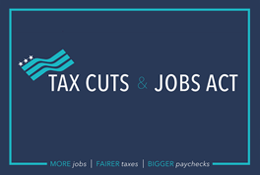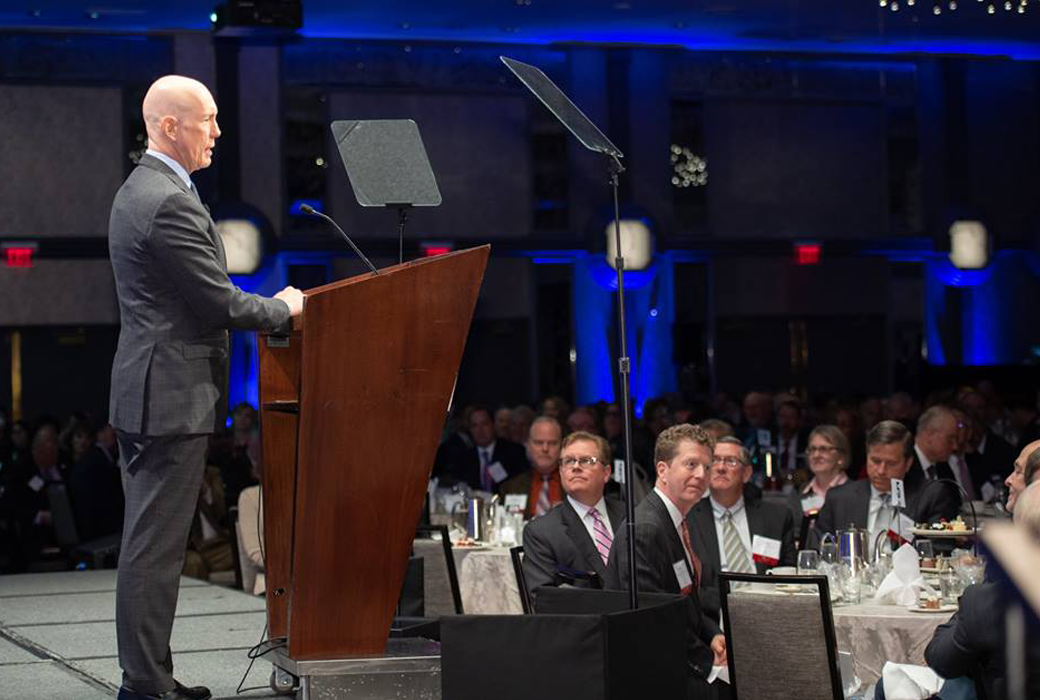
The New Tax Bill – What Nonprofits Should Know Right Now
On December 22, 2017, H.R. 1 (also known as the Tax Cuts and Jobs Act) was signed into law. This new tax law provides sweeping changes that potentially impact all U.S. taxpayers, including associations and other exempt organizations. For the most part, these changes are effective for tax years beginning after December 31, 2017.
The full text of the bill is here. The following provisions are of particular interest to exempt organizations:
• Decrease in Maximum Tax Rate – The bill decreases the tax rate for corporations, and on unrelated business taxable income (UBTI) for exempt organizations, from a maximum of 35% to 21%. Note that this new 21% rate is a flat tax rate. This decreased tax rate also applies to the proxy tax on exempt organizations for lobbying and political expenditures incurred, and also for Form 1120-POL.
This change in the tax rate structure may affect your organization’s estimated tax calculations. Your overall tax liability may decrease, or it may increase, based on your organization’s pre-2018 incremental tax rate.
In addition, for financial statement purposes, organizations should consider this new rate in valuing its deferred tax assets and liabilities, for tax years beginning after December 31, 2017.
• Unrelated Business Income – The bill requires exempt organizations carrying on more than one unrelated trade or business to calculate UBTI separately for each trade or business. This practice effectively prohibits using losses relating to one trade or business to offset income from another trade or business.
• Non-Deductible Fringe Benefits – The bill increases UBTI by the amount of certain fringe benefits for which deductions are disallowed. These fringe benefits include qualified mass transit and parking benefits paid by the employer. However, the provision for amounts paid by an employee through elective salary deferral via a qualified transportation fringe plan appears to be unchanged and would not be subject to tax.
• Executive Compensation – The bill imposes a 21% excise tax on compensation over $1 million for executives of nonprofit organizations. The excise tax is imposed on the organization and not on the employee.
• Net Operating Losses – The bill eliminates carrybacks of net operating losses (NOL), and it allows unused NOLs to be carried forward indefinitely. The bill also limits the NOL deduction to 80% of a taxpayer’s taxable income. These changes to the application of NOLs are effective for losses arising in tax years beginning after December 31, 2017.
• Local Lobbying Expenses – The bill eliminates the deduction for lobbying expenses regarding legislation before local government bodies, including Indian tribal governments. As a result, these expenses will be included in the calculation of non-deductible membership dues or proxy tax liability.
• Provisions Not Included – Certain provisions affecting nonprofits from earlier drafts of the tax bill have not been signed into law at this time. These provisions include the repeal of the Johnson Amendment, prohibiting Section 501(c)(3) organizations from engaging in political activity; the inclusion of name and logo royalties in UBTI; and changes to the methods for determining reasonable compensation for the purposes of the intermediate sanctions excise tax.
Many of these provisions require additional clarification and guidance, and still, others may require technical correction. We will provide additional information in the coming weeks regarding how the new tax bill could affect your organization. Please consult any member of the Tate & Tryon tax team if you have questions regarding this matter.
_
Lisa W. Heller is a Senior Tax Manager for not-for-profit organizations at Tate & Tryon.
To learn more about how the Tax Cuts and Jobs Act will affect your organization, join Lisa’s colleague Frederick Longwood as he hosts “Tax Reform for Nonprofit Organizations – What We Know So Far About the New Tax Cuts and Jobs Act” on Tuesday, March 6th from 2:00 pm – 3:00 pm. Mr. Longwood will dive even deeper into what tax laws have changed and what changes you need to make. Register today!


